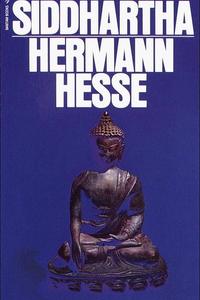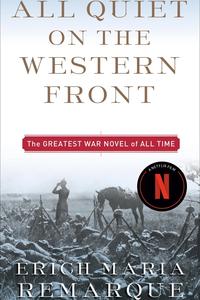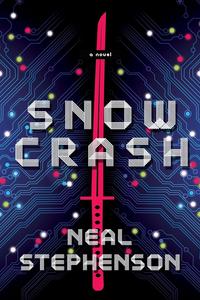
Demian by Hermann Hesse: Summary & Notes
by Hermann Hesse
In One Sentence
Coming of age is breaking free from inherited morality to discover your own nature—guided by the mysterious Demian, Sinclair learns that light and dark are both part of wholeness.
Key Takeaways
- Each person must find their own way
- The bird breaking from the egg destroys a world
- Light and dark coexist within us
- Conventional morality can be a prison
- Individuation requires facing your shadow
- Those who share our mark recognize each other
Summary
A classic tale of a boy growing to adulthood, struggling with good and evil, and with superficial ideals. I hadn’t enjoyed a novel this much in a long time. I found it particularly compelling given that I related so well, yet it was published in a much different time period (1919). It also contains what is probably the best description of a hangover I will ever read.
Who Should Read This Book
- Young adults questioning their identity
- Jung and psychology enthusiasts
- Hesse fans
- Anyone feeling different or alienated
FAQ
What is Demian about?
Emil Sinclair's journey from sheltered childhood through doubt to self-discovery. His friend Demian challenges conventional morality and introduces him to ideas that integrate light and darkness into a complete self.
📖 Chapter-by-Chapter Breakdown
Click to expand the full detailed notes for every chapter →
📖 Chapter-by-Chapter Breakdown
Click to expand the full detailed notes for every chapter →
Favourite Quotes
- The adult who has learned to translate a part of his feelings into thoughts notices the absence of these thoughts in a child, and therefore comes to believe that the child lacks these experiences, too.
- I realize today that nothing in the world is more distasteful to a man than to take the path that leads to himself.
- It was my own affair to come to terms with myself and to find my own way, and like most well-brought-up children, I managed it badly.
- You see, we don’t have free will even though the pastor makes believe we do. A person can neither think what he wants to nor can I make him think what I want to. However, one can study someone very closely and then one can often know almost exactly what he thinks or feels and then one can also anticipate what he will do the next moment. It’s simple enough, only people don’t know it. Of course you need practice.
- Examine a person closely enough and you know more about him than he does himself.
- We have a wider scope, greater variety of choice, and wider interests than an animal. But we, too, are confined to a relatively narrow compass which we cannot break out of.
- If you want something from someone and you look him firmly in both eyes and he doesn’t become ill at ease, give up. You don’t have a chance, ever! But that is very rare.
- Only the ideas that we actually live are of any value.
- What is forbidden, in other words, is not something eternal; it can change…That is why each of us has to find out for himself what is permitted and what is forbidden - forbidden for him. It’s possible to never transgress a single law and still be a bastard. And vice versa.
- Those who are too lazy and comfortable to think for themselves and be their own judges obey the laws. Others sense their own laws within them; things are forbidden to them that every honourable man will do any day in the year and other things are allowed to them that are generally despised. Each person must stand on his own feet.
- The sober reality to which I awoke after a brief deathlike sleep coincided with a painful and senseless depression. I sat up in bed, still wearing my shirt. The rest of my clothes, strewn about on the floor, reeked of tobacco and vomit. Between fits of headache, nausea, and a raging thirst an image came to mind which I had not viewed for a long time: I visualized my parents’ house, my home, my father and mother, my sisters, the garden. I could see the familiar bedroom, the school, the market place, could see Demian and the confirmation classes - everything was wonderful, godly pure, and everything, all of this—as I realized now—had still been mine yesterday, a few hours ago, had waited for me; yet now, at this very hour, everything looked ravaged and damned, was mine no longer, rejected me, regarded me with disgust. Everything dear and intimate, everything my parents had given me as far back as the distant gardens of my childhood, every kiss from my mother, every Christmas, each devout, light-filled Sunday morning at home, each and every flower in the garden—everything had been laid waste, everything had been trampled on by me!If the arm of the law had reached out for me now, had bound and gagged me and led me to the gallows as the scum of the earth and a desecrator of the temple, I would not have objected, would have gladly gone, would have considered it just and fair.
- I did not know myself, for I was too deeply involved.
- Love had ceased to be the deep animalistic drive I had experienced at first with fright, nor was it any longer the devout transfiguration I had offered to Beatrice. It was both, and yet much more.
- There was only one thing I could not do: wrest the dark secret goal from myself and keep it before me as others did who knew exactly what they wanted to be - professors, lawyers, doctors, artists, however long this would take them and whatever difficulties and advantages this decision would bear in its wake. This I could not do. Perhaps I would become something similar, but how was I to know? Perhaps I would have to continue my search for years on end and would not become anything, and would not reach a goal. Perhaps I would reach this goal but it would turn out to be an evil, dangerous, horrible one?
- I wanted only to try and live in accord with the promptings which came from my true self. Why was that so very difficult?
- If you need something desperately and find it, this is not an accident; your own craving and compulsion leads you to it.
- The surrender to Nature’s irrational, strangely confused formations produces in us a feeling of inner harmony with the force responsible for these phenomena. We soon fall prey to the temptation of thinking of them as our own odds, our own creations, and see the boundaries separating us from Nature begin to quiver and dissolve. We become acquainted with that state of mind in which we are unable to decide whether the images on our retina are the result of impressions coming from without or from within.
- There’s an immense different between simply carrying the world within us and being aware of it. A madman can spout ideas that remind you of Plato, and a pious little seminary student rethinks deep mythological correspondences found among the Gnostics or in Zoroaster. But he isn’t aware of them. He is a tree or stone, at best an animal, as long as he is not conscious. But as soon as the first spark of recognition dawns within him he is a human being.
- I would not be able to tell them, for example, that Christ is not a person for me but a hero, a myth, an extraordinary shadow image in which humanity has painted itself on the wall of eternity. And the others, that come to church to hear a few clever phrases, to fulfill an obligation, not to miss anything, and so forth, what should I have said to them? Convert them? Is that what you mean? But I have no desire to. A priest does not want to covert, he merely wants to live among believers, among his own kind. He wants to be the instrument and expression for the feeling from which we create our gods.
- If you hate a person, you hate something in him that is part of yourself. What isn’t a part of ourselves doesn’t disturb us.
- “The things we see,” Pistorius said softly, “are the same things that are within us. There is no reality except the one contained within us. That is why so many people live an unreal life. They take the images outside them for reality and never allow the world within to assert itself. You can be happy that way. But once you know the other interpretation you no longer have the choice of following the crowd. Sinclair, the majority’s path is an easy one, ours is difficult."
- "...I live in my dreams - that’s what you sense. Other people live in dreams, but not in their own. That’s the difference."
- Sooner or later each of us must take the step that separates him from his father, from his mentors; each of us must have some cruelly lonely experience — even if most people cannot take much of this and soon crawl back.
- An enlightened man had but one duty — to seek the way to himself, to reach inner certainty, to grope his way forward, no matter where it led.
- The real spirit will come from the knowledge that separate individuals have of one another and for a time it will transform the world. The community spirit at present is only a manifestation of the herd instinct. Men fly into each other’s arms because they are afraid of each other — the owners are for themselves, the workers for themselves, the scholars for themselves! And why are they afraid? You are only afraid if you are not in harmony with yourself. People are afraid because they have never owned up to themselves. A whole society composed of men afraid of the unknown within them! They all sense that the rules they live by are no longer valid, that they live according to archaic laws — neither their religion nor their mortality is in any way suited to the needs of the present. For a hundred years or more Europe has done nothing but study and build factories! They know exactly how many ounces of powder it takes to kill a man but they don’t know how to pray to God, they don’t even know how to be happy for a single contented hour. Just take a look at a student dive! Or a resort where the rich congregate. It’s hopeless. Dear Sinclair, nothing good can come of all of this. These people who huddle together in fear are filled with dread and malice, no one trusts the other. They hanker after ideals that are ideals no longer but they will hound the man to death who sets up a new one. I can feel the approaching conflict. It’s coming, believe me, and soon. Of course it will not ‘improve’ the world. Whether the workers kill the manufacturers or whether Germany makes war on Russia will merely mean a change of ownership. But it won’t have been entirely in vain. It will reveal the bankruptcy of present-day ideals, there will be a sweeping away of Stone Age gods. The world, as it is now, wants to die, wants to perish — and it will."
- We who wore the sign might justly be considered “odd” by the world; yes, even crazy, and dangerous. We were aware or in the process of becoming aware and our striving was directed toward achieving a more and more complete state of awareness while the striving of the others was a quest aimed at binding their opinions, ideals, duties, their lives and fortunes more and more closely to those of the herd. There, too, was striving, there, too, were power and greatness. But whereas we, who were marked, believed that we represented the will of Nature to something new, to the individualism of the future, the others sought to perpetuate the status quo. Humanity — which they loved as we did— was for them something complete that must be maintained and protected. For us, humanity was a distant goal toward which all men were moving, whose image no one knew, whose laws were nowhere written down.
- All men who have had an effect on the course of human history, all of them without exception, were capable and effective only because they were willing to accept the inevitable.
- “Love must not entreat,” she added, “or demand. Love must have the strength to become certain within itself. Then it ceases merely to be attracted and begins to attract."
- Sometimes I felt certain that it was not she as a person whom I was attracted to and yearned for with all my being, but that she existed only as a metaphor of my inner self, a metaphor whose sole purpose was to lead me more deeply into myself. Things she said often sounded like replies to my subconscious to questions that tormented me.
- At one time I had given much thought to why men were so very rarely capable of living for an ideal. Now I saw that many, no, all men were capable of dying for one. Yet it could not be a personal, a freely chosen ideal; it had to be one mutually accepted.




